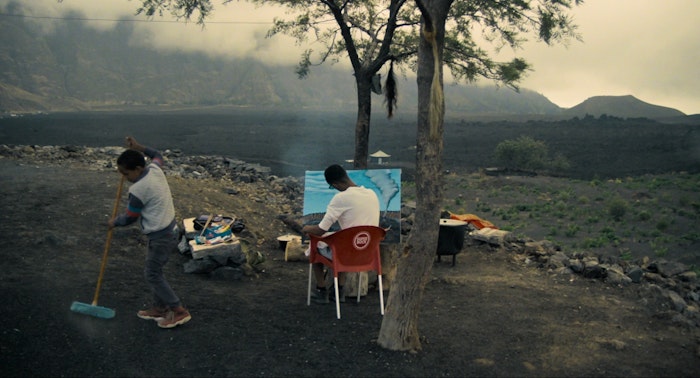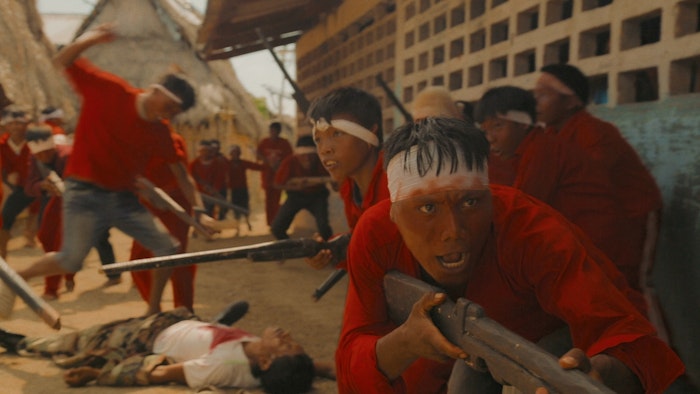Hong Kong Mixtape
In HONG KONG MIXTAPE, director San San F. Young weaves a powerful narrative about creativity and resistance in the face of growing authoritarian control. As a sweeping national security law restricts words, images, slogans, and songs, Young shares her personal journey alongside those of Hong Kong's bold artists—rappers, stunt collectives, and more—who dare to defy the silence. Through their stories, the film captures the raw tension between self-expression and survival, exploring what it means to risk everything for art in a city caught in a battle for its soul.
"Hong Kong Mixtape is a love letter to the region and its people, celebrating the passion and talent of its creatives, and honouring the resilience of those who make their voices heard even when silenced." - HotDocs
Apple Cider Vinegar
Stones are at once the most foundational and the most overlooked parts of our lifeworld. When a retired nature documentary narrator passes a kidney stone, she decides to tell one more story about this forgotten world of stone. A hypnotic essay film asking urgent ecological questions, Apple Cider Vinegar takes the viewer on a journey meeting Palestinian quarry workers, a passionate British Geologist, and people living on the lava fields of Fogo.
"a deeper message about the interconnectedness of all things" - Documentary Magazine, IDA.
Bila Burba
Colonialism wiped out many Central and South American cultures, but not the Gunadule, the indigenous people of northern Panama. In 1925 they successfully resisted the repression of their culture by the Panamanian government. In three days of fighting, they won their autonomy and thus saved their way of life. Known as the “Dule Revolution,” the glorious battle is commemorated annually with a reenactment involving hundreds of participants, including many children. Bila Burba, made by Duiren Wagua, a member of the Gunadule, shows the reenactment of the successful revolution, and looks back with descendants of the revolutionaries on the reasons for the uprising and the course of the events. The film convincingly shows the power of this community theater in maintaining a unique autonomy is once again under threat due to the Panamanian government’s sale of parts of their territory.
"Beyond the written word and photographic evidence, how does one keep history alive?" - Guardian
Onlookers
Onlookers offers a visually striking, immersive meditation on travel and tourism in Laos, reflecting on how we all live as observers. Traversing the country's dusty roads and tranquil rivers, we watch as elaborate painterly tableaus unfold, revealing the whimsical and at times disruptive interweaving of locals and foreigners in rest and play. Drawn to spectacle, tourists swarm to magnificent Buddhist temples, the ordered rituals of monks, and sites of dazzling natural beauty, then recede like a passing tide, leaving Laotians to continue with their daily lives.
"Visually-stunning! ....showcases how tourism can have an effect on a country and its local people." - The Playlist
Who, if Not Us? The Fight for Democracy in Belarus
Who If Not Us? provides a unique glimpse into the struggle for democracy in Belarus and the lives of three women after the major protests of 2020. These protests were the largest in Belarus's history, but the Lukashenko regime brutally suppressed them. Over the course of an entire year, the film follows these exceptional women from different generations, all of whom continue to tirelessly fight for a democratic Belarus.
"Director Juliane Tutein fashions a melancholic mood-piece which chronicles ineffectualness in the face of impregnable state machinery, and the meaning of resistance under such circumstances" - Guardian






